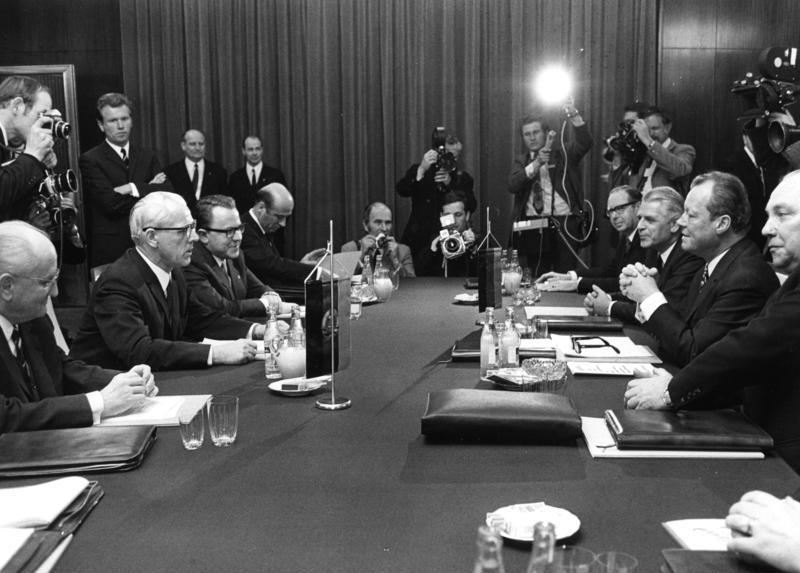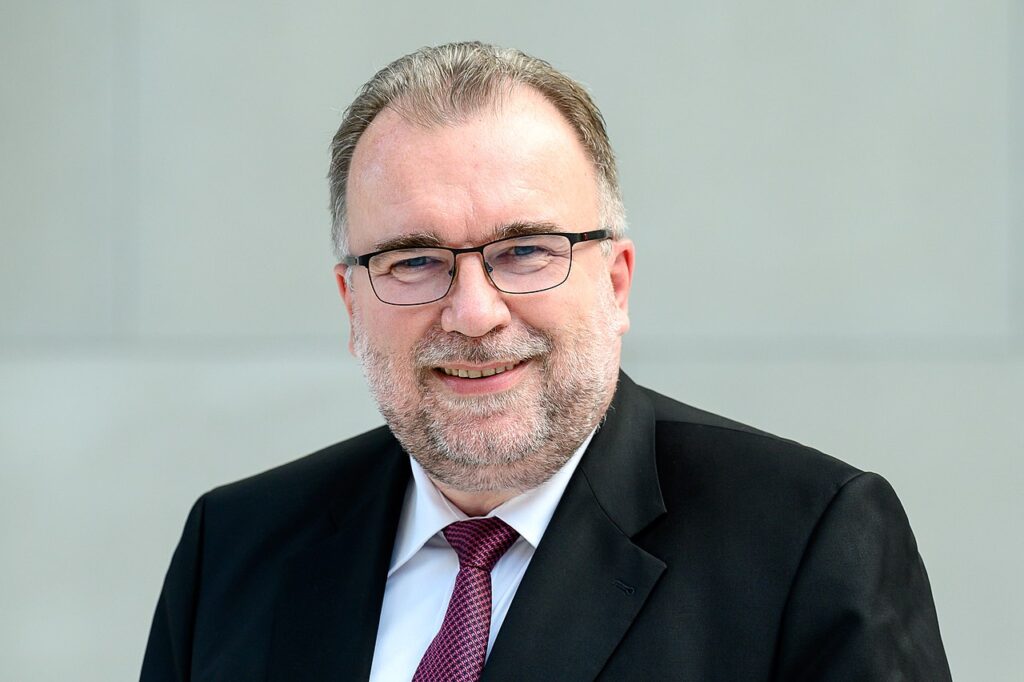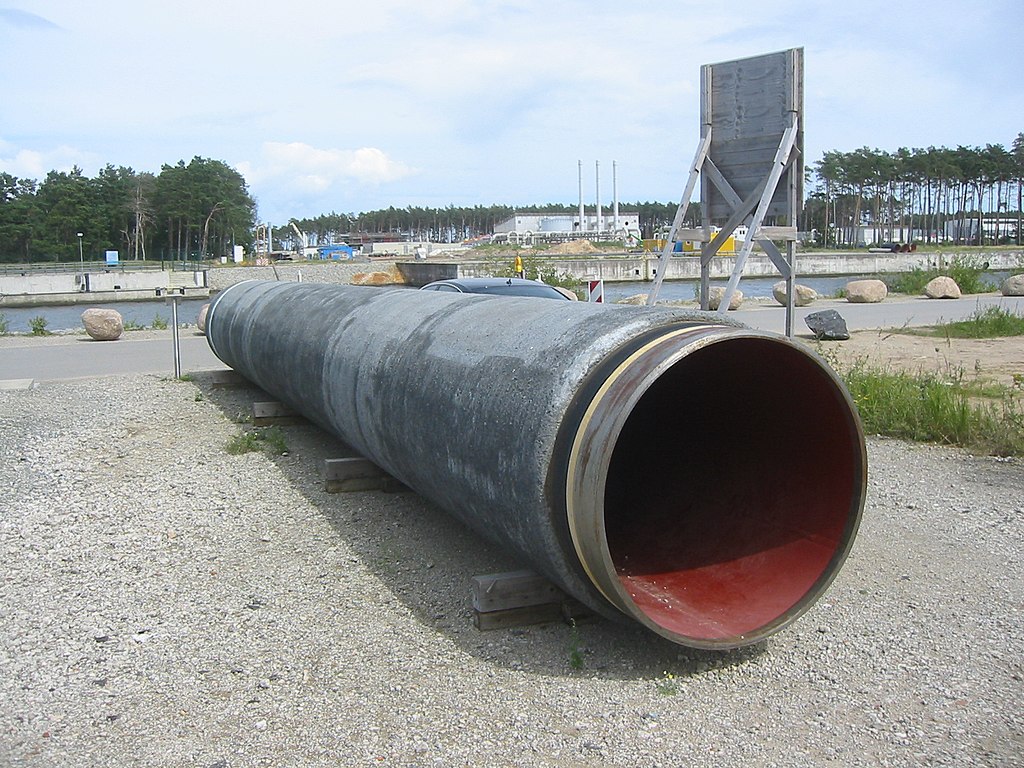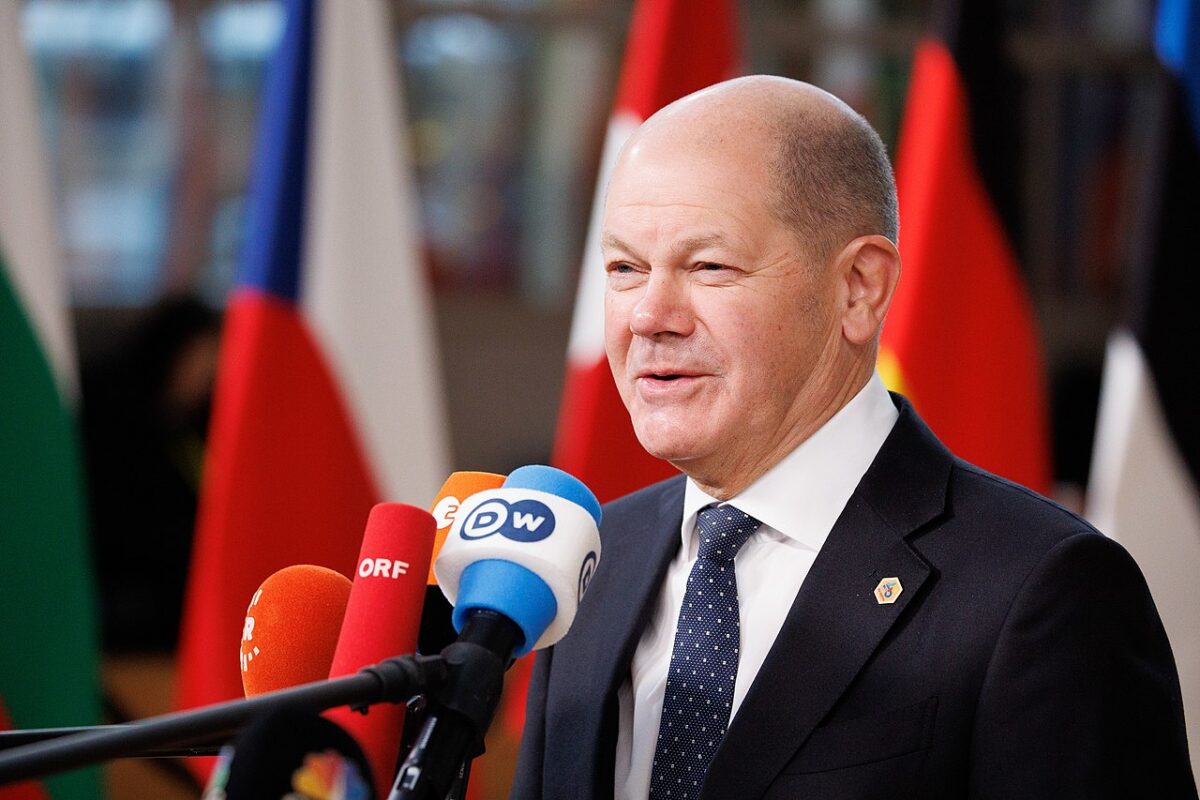The Taciturn German to Watch
Chancellor Olaf Scholz
Germany and the Germans struggle to get comfortable donning the mantle of leadership circumstance has thrust upon the country. The nation and its leaders are visibly shocked by the rapid demise of the old world order and the unfolding ‘Zeitenwende’: the epochal tectonic shift that began with a global geopolitical rebasing and reached a disconcerting apex with Russia’s war of aggression against Ukraine.
Whereas Germany traditionally strives to uphold the principles of the UN Charter as broad guidelines for international order and equilibrium, the country now faces the much more restricted and complex task of safeguarding peace in Europe, imposing compromise on quibbling members of the EU, and securing a meaningful role for the continent in a multipolar world. And, of course, its economy must continue to ensure financial stability.
It’s a tall order for any chancellor and particularly one expected to fill the shoes of Angela Merkel who kept Germany, Europe, and indeed the world on a fairly even keel during her sixteen years in office. The baffling question facing all German chancellors is how to lead without being seen to do so. Mrs Merkel deployed icy looks and faint smiles to signal her mood. When genuinely angry, she usually just refused to comment or engage. That was enough to chastise unruly interlocutors and usher them back in line.
Chancellor Scholz possesses no such skills and is less subtle in his demeanour. To the surprise of many, he not only condemned Russia’s invasion of its neighbour in the strongest of terms but almost immediately unveiled a €100 billion rearmament drive to equip the Bundeswehr for a ‘new era’ of hot war on European soil.
Ostpolitik Out
Out the window went decades of carefully choreographed (Neue) Ostpolitik that sought to ease East-West tensions through active engagement. The hallmark foreign policy of the Social Democratic Party (SPD) was introduced in the early 1970s by then-Chancellor Willy Brandt who, in 1971, received the Nobel Peace Prize for the initiative.

It has not escaped the commentariat that it was another SPD chancellor who ditched the policy overnight and now openly calls for confrontation: “This is not just any war, but one waged by a nuclear-armed great power to eliminate an independent nation.” However, Chancellor Scholz’ volte-face has since met stiff opposition from his coalition partners. Many practicalities also conspire against Germany’s newfound determination to face up to Russia.
The country has been painfully slow to dispatch weaponry to Ukraine, citing its own depleted stock of hardware or the refusal of others – foremost Switzerland – to grant export licenses. Almost daily, Chancellor Scholz is being accused in the press of indecisiveness and his apparent refusal to lend urgency to the delivery of military kit.
Some NATO allies entertain a lingering suspicion that the German government may be playing for time. Berlin’s fence-sitting is at odds with Chancellor Scholz’ initial bravado but could be rooted in the thinking that, post war, some sort of entente must be found that accommodates Russia. After all, that country is not about to vanish and must somehow be inserted in a future concert of nations.
Aside the geopolitical conundrum facing Germany – is its first line of defence located on the Elbe or the Dnieper? – the Zeitenwende also poses an existential threat to the country’s economy and with that to nearly all of Europe. Without having any ready solutions, Chancellor Scholz is acutely aware of the danger to an economy largely based on, and powered by, cheap and plentiful energy.
Industry Exodus
Earlier this week, BASF CEO Martin Brudermüller said that his company would downsize in Europe “as quickly as possible and also permanently.” In Ludwigshaven, at BASF’s flagship facility, several production lines have already been mothballed. The ammonia plant was shut down whilst the run rate of the acetylene facility was sharply reduced due to the high price of the natural gas that is used both as feedstock for chemical processes and fuel for the power plants.
Mr Brudermüller’s blunt statement raised fears in Berlin that the company may in time shutter its vast Ludwigshaven complex entirely and shift production to China where BASF is building a €10 billion chemical plant in Guangdong.

Economy Minister and Vice-Chancellor Robert Habeck noted that some were taking an ‘almost sensual pleasure’ in predicting Germany’s industrial decline. Mr Habeck went on to state that the Scholz cabinet is determined to, and capable of, preventing that. Almost on cue, Chancellor Scholz announced a €200 billion support package for households and businesses, including large ones, struggling with the high cost of energy.
Large industrial users such as BASF will be able to buy natural gas at a rate of seven cents per kWh for up to seventy percent of their consumption until then. Any part of the allotted energy contingent not used may be resold which could net the chemical giant a profit of some €2.6 billion. However, Mr Brudermüller may not qualify for the state largesse which is conditional on keeping production and jobs in Germany.
Report Card
Chancellor Scholz faces more trouble on the domestic front. According to an opinion poll commissioned by Der Spiegel, just 29% of those queried expressed confidence in the coalition’s ability to successfully navigate the multiple crises.
Up to 45% of the respondents awarded the ‘traffic light’ coalition a ‘very negative’ rating. To add to the coalition’s troubles, the powerful Bundesverband der Deutschen Industrie (BDI, Federation of German Industry) criticised the government for the slow pace of the promised fiscal reforms.
The BDI warned that one in every five of its member companies is actively working to shift production out of the country, undermining Germany’s famous Mittelstand – the vast universe of small- and medium-sized businesses that form the backbone of the country’s economy.
BDI-Chairperson Siegfried Russwurm appealed to Chancellor Scholz for more speed and determination in readying Germany for the new realities: “If this coalition wants to be truly progressive, it must make haste with fiscal reform. If not, domestic investment will evaporate, curtailing growth and undermining our prosperity.”
Part of Chancellor Scholz’s troubles both at home and abroad may be ascribed to his reluctance to lead and, almost by extension, his tendency to dither and wobble when the going gets proverbially tough. A great communicator he is decidedly not, preferring to murmur instead and disappear into the background such as when he hosted the G7 meeting in Bavaria where the chancellor was mysteriously absent from the traditional group photo.

“We have a chancellor who refuses leadership,” says Stefan Meister of the German Council on Foreign Relations, a policy think-tank: “He only acts in the context of our allies but makes no effort to lead those alliances.”
On the other hand, Chancellor Scholz is a stranger to flights of fancy and grandstanding; he tries to de-escalate by looking for compromise instead – an exceptional quality amongst contemporary world leaders.
An example of inept communication came during a speech at a recent convention of German Catholics when Mr Scholz mused if more violence is the answer to violence and if peace can only be established by force. Speaking to an audience of pacifists, many wondered if the chancellor was pandering to those present or questioning their beliefs.
Poor communication, and perhaps a fear of offending his less belligerent coalition partners, also opens the door to unmerited criticism of Germany’s support for Ukraine. In relation to the size of its economy, Germany is doing as much for Ukraine as most EU member states.
The country supplied some 2,500 anti-aircraft missiles, many thousands of anti-tank weapons, over 15 million rounds of ammo, and a long list of other gear. Chancellor Scholz now promises to dispatch the IRIS-T SLM medium-range surface-to-air defence system which can shield a city as large as Kyiv from missile attacks.
Foreign Affairs Minister Annalena Baerbock pointed out, perhaps superfluously, that Germany has been reluctant to supply weapons to a region where its own forces killed millions during World War II. However, former Polish Foreign and Defence Minister Radoslav Sikorski, admitted that he, and many of his fellow Poles, now fear German power much less than German inactivity: “It may have taken Putin’s invasion of Ukraine for Europe to finally become comfortable with German military power.”
It is quite a change for a country that until last year refused to export military hardware to any country engaged in, or at risk of, conflict. For over seventy years, Germany has been steeped in pacifism. An aversion of national pugilism has thus become part of the nation’s psyche. The woefully ill-equipped Bundeswehr was a source of pride rather than embarrassment.
To reverse course and admit that the axiom from Roman times ‘si vis pacem, para bellum’ (if you want peace, prepare for war) may hold some truth takes an almost Herculean political effort that also involves much nose holding. Rolf Mützenich, SPD-leader in the Bundestag, admitted that he had to ‘grit his teeth’ when voting to approve the €100 billion supplementary armaments budget.
Fighting Scepticism
Cautious by nature but a capable administrator, Chancellor Scholz must deal with a fair degree of scepticism as well – and told-you-so recriminations. Under his predecessor Angela Merkel, Germany lost considerable goodwill in Europe and elsewhere with its intransigence on completing the €11 billion Nord Stream 2 pipeline project (now defunct and furtively shot to bits by an unknown power) and on its rejection of warnings against depending too heavily on Russia for its energy needs. When war broke out, and natural gas flows dwindled to a trickle, it suddenly dawned on Berlin that the country possessed not a single terminal to receive LNG imported from overseas.
Eastern EU member states showed both surprise and barely disguised contempt when Chancellor Scholz recently presented a set of interesting proposals to reform the EU’s foreign policy decision-making process, including stripping member states of their veto power. Polish members of the European Parliament questioned the ‘arrogance’ of the initiative by a country that has followed rather than led on Ukraine and other matters of continent-wide importance – and had refused to listen to its partners about Russia and energy.
Chancellor Scholz has repeatedly called for a German diplomacy without naiveté. The coaxing of troublesome partners with ‘Wandel durch Handel’ (Change through Trade) seems to have been confined to history – or at least for as long as President Vladimir Putin holds sway over the Kremlin.

That naiveté – aka the Merkel Consensus – reached its highpoint during the Merkel years when Germany trusted that Moscow would prove a reliable energy partner. Germany tacitly accepted Russia’s desire for influence over its immediate neighbourhood as reasonable provided Moscow cooperated with Europe in maintaining the peace. This also helps explain Europe’s tolerance of Belorussia with its strongman and Kremlin stooge Aleksandr Lukashenko even after that dictator forced down a Ryanair plane on a flight from Athens to Vilnius in order to arrest a prominent dissident.
Tête à Tête in China
In November, Chancellor Scholz became the first western leader to visit Chinese president Xi Jinping since the outbreak of the Corona Pandemic. In what was widely considered a reaffirmation of Germany’s foreign policy independence, the German leader signalled a desire to broaden and intensify economic cooperation. To that end, he travelled with an entourage of executives of iconic corporates such as Volkswagen, Bayer, and BASF.
Chancellor Scholz said that he and President Jinping agreed that Russia’s nuclear threats were ‘irresponsible and highly dangerous’ – words left out in the Chinese telling of events. Both leaders also expressed a need to work together in ‘times of change and turmoil’.
The short trip – it lasted just eleven hours – sparked concern in Europe and elsewhere with some questioning the wisdom of investing heavily in China given the not insignificant risk of that country making a move on Taiwan. French president Emmanuel Macron was disappointed that Mr Scholz failed to coordinate his China trip with others in the EU and warned the chancellor that he risked becoming isolated.
The Paris-Berlin axis, often described as the engine driving the EU, is showing disconcerting cracks. French concerns centre on the geo-strategic consequences of the war in Ukraine which is seen to enhance Germany’s importance and push France to the sideline. Differences on a host of topics – including defence, energy, subsidies, and EU expansion – have caused a rift in trans-Rhine relations.
The surprise announcement that Germany would acquire US-made F35 fighter jets and Patriot air defence batteries has irked Paris as it leaves European defence initiatives such as the Future Air Combat System in limbo. France and other EU member states are also upset by the €200 billion in state aid Chancellor Scholz has earmarked to support businesses and households through the energy crisis. France has argued that it’s impossible to compete with such a high volume of subsidies whilst Germans reply that the French are in no position to dispense lessons about the iniquity of dispensing state aid.
The Quiet Type
If anything, the differences underscore the renewed sense of pragmatism now reigning in Berlin. In an editorial, Le Figaro noted that France is content to talk about sovereignty whilst Germany exercises it. That exercise in sovereignty may be understated, it is nonetheless real.
And that’s the essence of the German chancellor: taciturn, considerate, low-key yet determined to carefully plot a course through the political and diplomatic minefields that the country faces.
Mr Scholz seems much aware of the inner strength emanating from Western democracies – and of their tendency to react slowly to emerging threats. As US diplomat and historian George Kennan surmised: Democracies are like prehistoric monsters largely indifferent to what happens in their vicinity: “you practically have to whack off their tail to elicit a response. However, when that tail is whacked hard enough, they react with speed, determination, and strength.”
President Putin was apparently less familiar with the notion: a miscalculation that has cost him dearly. Russia’s annexation of the Crimean Peninsula was a mere pinprick that failed to rouse the monster.
Chancellor Scholz’ Zeitenwende – a pivot of historical significance – is the clearest sign yet that Germany has shifted track – and where Germany goes, Europe follows. However, it may take some time for Germans to get used to, and comfortable with, the position of leadership thrust upon their nation. Germany has been pulled out of its comfort zone and is slowly preparing to flex its not inconsiderable industrial muscle and build up its military whilst at it.
Chancellor Scholz is not one for hype. But it’s the quiet types that need watching for they mean business.
Cover photo: German chancellor Olaf Scholz means business.
- © 2022 Photo Olaf Scholz by Christophe Licoppe
- © 1970 Photo Willy Brand and Willi Stoph by Bundesarchiv
- © 2014 Photo BASF Ludwigshaven by BASF
- © 2020 Photo BDI president by BDI
- © 2011 Photo Nord Stream by Assenmacher


